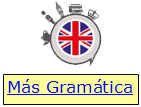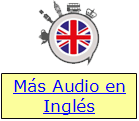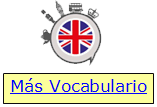|
In this episode, episode 50 of Aprender
ingles con Reza y Craig, we speak about indirect questions and we hear a
travel story from our special guest Nicola.
What are indirect questions and when do we use them?
We use indirect questions to be more polite, to be more formal and
impersonal. When you want to ask difficult, personal and sensitive
questions.
Indirect questions are also used in formal emails.
How old are you? (direct question)
Would you mind me asking how old you are? (indirect question)
Indirect questions have the same word order as a statement (una
afirmación)
Would you mind telling me how old you are? (indirect question) – Word
order: “HOW OLD YOU ARE” (direct question: “How old are you?”)
Other ways of introducing an indirect question include:
Could/Can I ask you….
I’d be interested to know….
can/Could you tell me…
Would you mind….(+ gerund) “Would you mind telling me where you live?”
“Would you mind telling me what you do for a living?”
Might/May I ask you…”Might I ask you how old you are?”
I was wondering if you could tell me…
It’s very ‘around the houses’ (If you ‘go round the houses’, you do
something in an inefficient way when there is a quicker, more convenient
way.
You waste time saying a lot of things that are not important before you
get to the subject you want to talk about “There’s no need to go all
round the houses, just tell me straight out what’s wrong!”)
Do you have any idea…”Do you have any idea when the next bus arrives?”
Would you be so kind as to tell me….”Would you be so kind as to tell me
how old you are?”
If it’s not too much trouble, would you mind telling me…..
A Spanish speaker would probably use ‘usted’ to sound more polite and
formal.
In indirect questions with is/are, the verb (to be) goes at the end
“What’s (What IS) your name?” – “Could you tell me what your name IS?”,
“Would you mind telling me where the train station IS?”
The auxiliary verbs “do”, “does” and “did” are removed in indirect
questions – “Do you know the time? (direct question) “I wonder if you
could you tell me what the time is?”, “Could you tell me what the time
is?” (indirect question)
Do you have any children? (direct) – “Can I ask if you have any children?”
(indirect)
With ‘yes’ or ‘no’ questions (when the answer is either ‘yes’ or ‘no’
(Are you married? Yes/No) and when there’s no question word (When, How,
What, Where etc?) – Use “if” or “whether”
“Do you like chocolate biscuits?” (direct)
“Could I ask IF/WHETHER you like chocolate biscuits?” (indirect)
REZA: Where were you born?
CRAIG: Would you mind telling us where you were born?
NICOLA: Not at all, Craig. I was born in London, North London.
REZA: What other places or countries have you lived in?
CRAIG: We’d be interested to know what other countries you’ve lived in.
NICOLA: Well, I’ve also lived in France, and other places in the north
of England
REZA: If you won the lottery, what would you buy?
CRAIG: Would you mind telling us what you would buy if you won the
lottery?
NICOLA: I wouldn’t mind at all. A big holiday with the family. Forget
about work. Go travelling. Maybe, I don’t know, buy a house somewhere.
REZA: What do you like most, and least, about teaching English?
CRAIG: Could you please tell us what you like most about teaching
English? And would you also mind telling us what you dislike most?
NICOLA: I really enjoy the contact with students, personal relationships
that you form with students, seeing them develop, as well. Seeing them
improve. And what I like least, probably the admin side of things.
REZA: What attracted you to come and live in Valencia?
CRAIG: Could you explain what attracted you to come and live in
Valencia?
NICOLA: Initially, I came to learn Spanish, and as a secondary thing I
came to see if I could live here. And it seems that I have done both.
CRAIG: How long have you been in Spain? (direct) Would you mind telling
us how long you’ve been in Spain?
NICOLA: I’ve been here 13 years now.
REZA: And where were you before Valencia?
CRAIG: Would it be possible to know where you were before Valencia?
NICOLA: Before Valencia I had a year off, I was travelling around for a
year, around the southern hemisphere; Australia, Malasia, Thailand,
Indonesia..
to wrap up = to complete, to finish (redondear)
TRAVEL with Nicola
 *Dispones
de más
PODCAST en inglés publicados en los cuadernos anteriores *Dispones
de más
PODCAST en inglés publicados en los cuadernos anteriores
a los que puedes acceder directamente así como al índice de su
contenido. |
|
|
